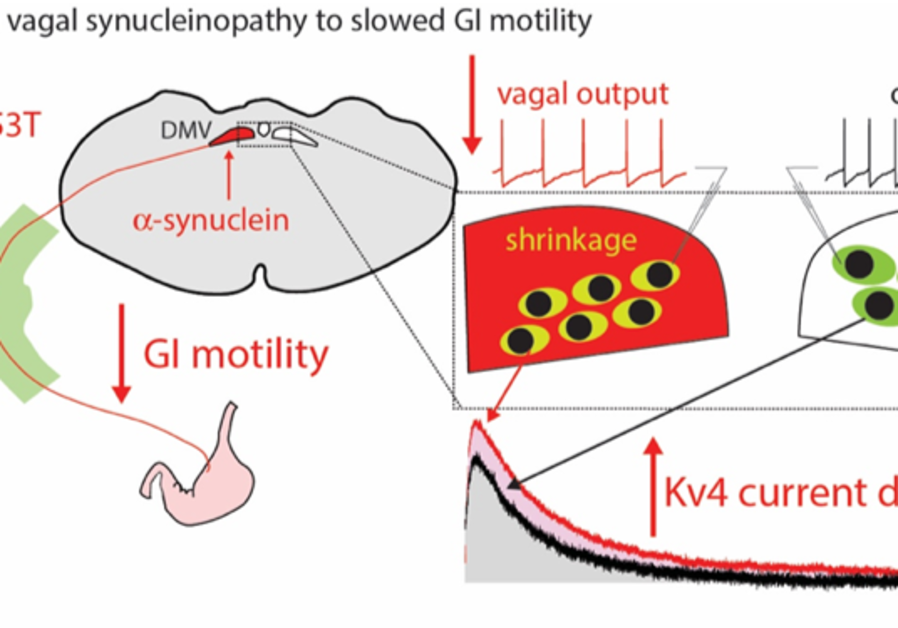By the time Parkinson’s disease, one of the most common neurological disorders, is diagnosed, the progression of the disease can not be reversed, giving doctors one option: to treat the symptoms. However, a research team from the Hebrew University of Jerusalem discovered a possible way to diagnose the disease up to 20 years earlier using an unusual method: investigating and understanding the physiological process behind constipation.
“Consider a 55- to 60-year-old patient suffering from constipation,” Goldberg said. “We could one day design a test based on the neural changes we’ve discovered to determine if there’s a neural factor that could indicate Parkinson’s.”
How does Parkinson’s work?
Dopamine cells stop reaching the brain, leading to the loss of cells.
The number of cells lost in the process is large by the time the disease is usually diagnosed, which is why recovery is so difficult. This leads to visible motor symptoms in the patient indicating the presence of the disease.
cnxps.cmd.push (function () {cnxps ({playerId: ’36af7c51-0caf-4741-9824-2c941fc6c17b’}). deliver (‘4c4d856e0e6f4e3d808bbc1715e132f6’);});
if (window.location.pathname.indexOf (“656089”)! = -1) {console.log (“hedva connatix”); document.getElementsByClassName (“divConnatix”)[0].style.display = “none”;}
Constipation is one of the few non-motor symptoms of Parkinson’s. It is actually quite common and can be an indicator of the disease if it is analyzed as early as 20 years.
The hypothesis is based on the discovery of Lewy bodies, small deposits of protein waste in brain cells. The discovery was led in 1912 by Dr. Friedrich Lewy.
In the early 2000s, researchers analyzed the pathway that the Lewy bodies follow in the brains of Parkinson’s patients. Although nothing conclusive came of it, they suggested that the accumulation of protein waste does not take place in random places in the brain, but rather intentionally, in places that control the healthy functioning of body parts.
In particular, they saw that one of the first places in which the Lewy bodies occur was the area that controls the gastrointestinal movement, possibly explaining the connection.
 A model to slow down the digestive system following the expression of alpha-synuclein proteins in the brainstem. (Credit: J. GOLDBERG / J. ROEPER)
A model to slow down the digestive system following the expression of alpha-synuclein proteins in the brainstem. (Credit: J. GOLDBERG / J. ROEPER)They found that the electrical activity of the brain cells slowed down by overexpressing the protein – the cells literally shrank. They could then link it to human brains in the early stages of Parkinson’s.
